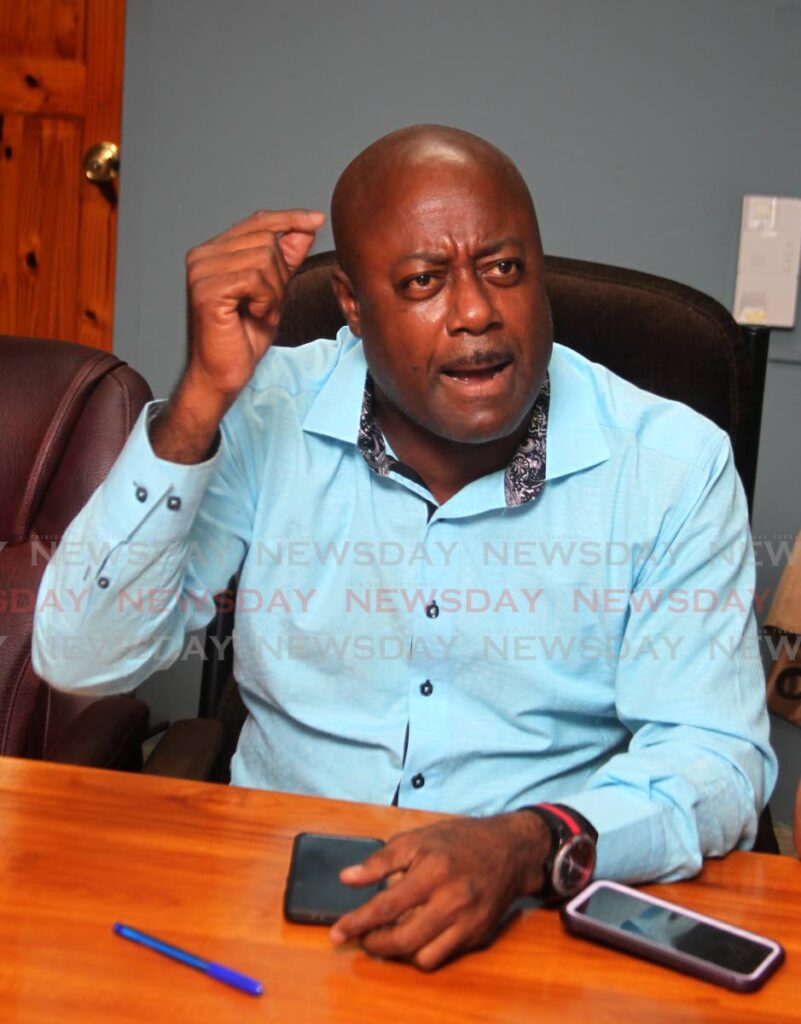Privy Council dismisses Ceron Richards's appeal over suspension

The Privy Council has dismissed an appeal brought by head of the Prison Officers' Association Ceron Richards, against the Public Service Commission relating to his suspension in 2016, for allegedly failing to secure his firearm which was stolen during a robbery at his home.
In 2017, Justice Ricky Rahim found the commission was unfair not to have taken Richards’ account for the firearm and ammunition and quashed the suspension decision.
The commission successfully appealed Rahim’s ruling in 2019, with the Court of Appeal ruling the judge erred when he assumed the mere assertion that the gun had been stolen was an account of the items.
Justices of Appeal Gregory Smith, Prakash Moosai, and Peter Rajkumar ruled that natural justice did not require the commission to provide Richards with an opportunity to be heard before suspending him since public service regulation 88, did not provide for an implied hearing before a suspension, and did set out a comprehensive code in how it handled allegations against a public officer.
The appellate court also held the commission was only required to consider the matters prescribed by regulation 88 in the public interest or the reputation of the public service when issuing a suspension, and it had done so.
Before the commission's appeal was heard it notified Richards that it would not be proceeding with any charges against him and lifted his suspension.
Richards appealed the Court of Appeal’s decision to the Privy Council and was represented by Ramesh Lawrence Maharaj, SC, while the commission was represented by Thomas Roe, QC.
In his submissions, Maharaj said all the commission had before it was bare allegations and that trial judge Rahim was correct in arriving at the decision he did.
He said Richards provided an explanation behind the theft of the gun but this was not considered before he was suspended. Maharaj also said it was not set out by the commission why it felt the public's interest would be served by the suspension.
Maharaj said Richards complied with the requirements under the Firearms Act by securing the weapon and the commission “could have asked questions.
“The commission acted on bare allegations and they had an opportunity to hear from him.”
Roe countered there was no practical injustice meted out to Richards when there was no right under the regulations to be heard before the suspension.
Roe insisted there was no basis for saying the decision to suspend was unfair. The allegations against Richards, which were eventually not pursued, were that he failed to adequately secure and account for the firearm and ammunition.
In their decision, the Privy Council held the commission could rationally consider that the loss of the firearm, in circumstances where it was suggested Richards had not taken proper care, was a serious matter affecting the reputation of the prison service.
“The loss of a service firearm by theft, with the result that it may enter into circulation in the criminal world, is clearly contrary to the public interest and if this occurred because of a failure of a prison officer to take proper steps to secure the weapon when it was at his home that could undermine public confidence in the public service,” the Privy Council judges said in the decision.
It also held it was satisfied that although there was a five-month delay by the commission to notify him of the allegation was unfortunate, there was no reason to infer that it did not think the allegation was not serious or that it was not greatly concerned by the loss of the firearm as submitted by Maharaj.
They also dismissed the submission that the commission acted unfairly and unlawfully by not giving Richards an opportunity to make representation since there was no right to a hearing before a commission exercised its power to suspend an officer.
In answering the question if fairness required the commission to invite Richards to make representations before it suspended him, the judge said they were of the view “this was not required.”
“Fairness is another name for natural justice, so for convenience, the Board will refer to fairness or the duty to act fairly…What fairness requires depends on the context in which the power arises and the circumstances in which it falls to be exercised.”
In Richards’s case, they held the decision to suspend him with full pay was taken in the context of an ongoing preliminary investigation and the commission was entitled to adopt the course it did as the investigation progressed rather than hold its own separate probe.
Although dismissing the appeal, the judges did find that the commission breached its duty when it failed to consider a letter Richards submitted providing an explanation for the missing gun and ammunition. The letter had been misfiled and the commission did not have it before he was suspended
“The position is therefore as if a decision-maker put a document containing relevant information in his or her desk and did not look at it before deciding how to proceed, which would be both unfair and irrational.”
However, it said even if it had the letter, it could not have made any difference in the decision to suspend since it provided no new information.
“Since this is not a case in which there was a right to a hearing before the decision was taken and it is clear that the element of unlawfulness present has had no impact on the decision, it is appropriate that relief should be refused and that the decision should not be quashed.”


Comments
"Privy Council dismisses Ceron Richards's appeal over suspension"